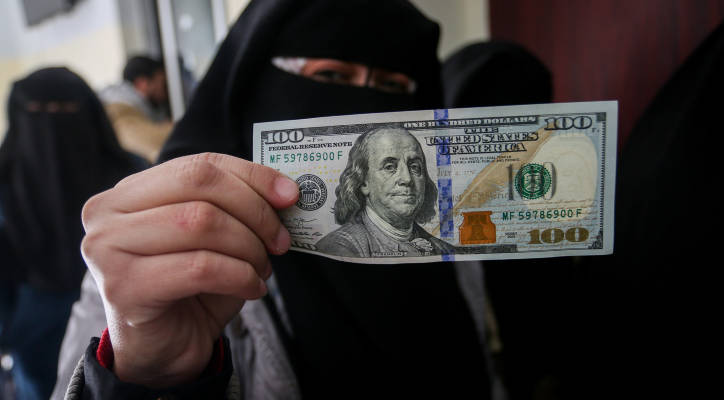Palestinian banks moved to protect themselves ahead of a new Israeli anti-terrorism law that comes into effect May 9 and would leave them liable to be sued if they continued to accept tens of millions of dollars monthly in pay-for-slay money from the PA.
By Yakir Benzion, United With Israel
One of the architects of a new Israeli law to stop the Palestinians from paying salaries and stipends to convicted terrorists and their families said Friday he was “loving it” that Palestinian banks are blocking access to terrorists’ bank accounts.
“Palestine Media Watch is glad to see that the banks heeded our warning and are taking the steps necessary to avoid both criminal and civil liability,” Maurice Hirsch told United With Israel.
Hirsch is director of Legal Strategies at the media watchdog organization and heads PMW’s legal campaign to stop the “pay-for-slay” phenomenon. The Palestinian Authority (PA) pays $150 million annually to the families of Palestinians who were killed in attacks against Israelis, including mass murders like car bombings and suicide bombings, and to terrorists in jail convicted of attacking or killing Israelis.
“The fact that the Palestinian Authority has paid billions of shekels of rewards to terrorists is despicable,” Hirsch said.
Last month, his organization sent a letter warning the banks to drop the accounts of convicted terrorists who get paid by the PA. Banks that continued to maintain the accounts of terrorists would expose their management and employees to liability as “partners in crime.”
“As Palestinian Media Watch warned the banks that operate in the PA controlled areas, the new anti-terrorism law criminalizes every aspect of that practice, including the provision of banking services to the terrorists,” Hirsch explained.
Last week, Hirsch said that after more than a $1 billion payout over the years for Pay-for-Slay, the goal of the new law is to “close the noose around this disgraceful policy.”
“The time has come for Israel to more actively and aggressively contend with the PA policy,” he said.
